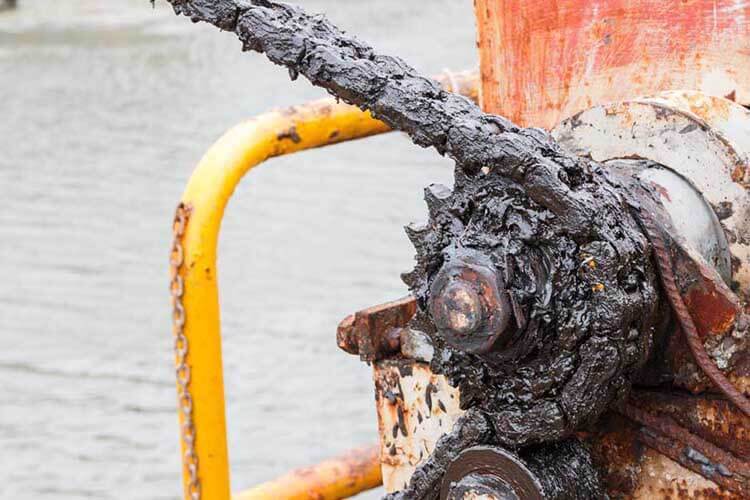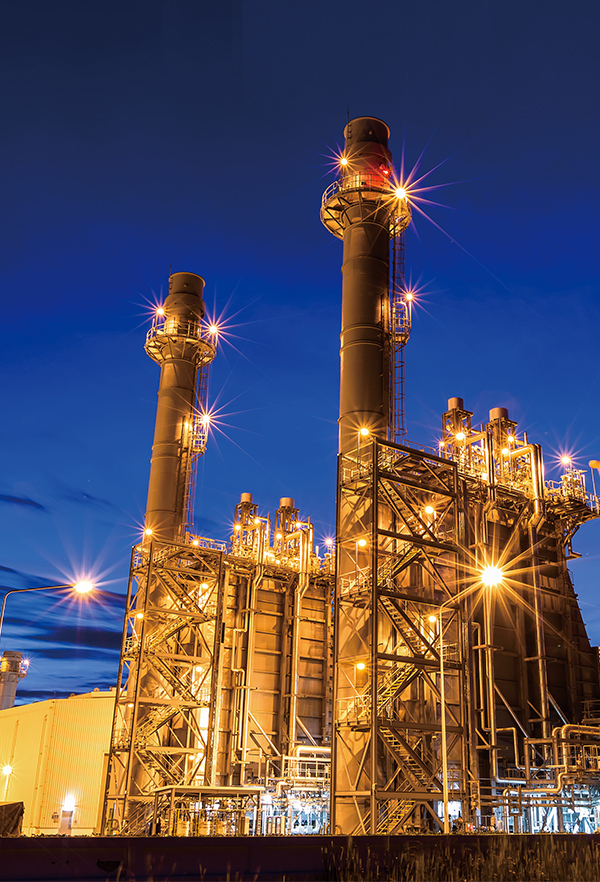A degreaser is a cleaning agent used to dissolve grease and oil from hard surfaces. Depending on the scenario for application, natural, chemical/solvent, or water-based degreasers may be selected to remove build-ups of grease and oils.
Whether selecting a degreaser for industrial operations, such as cleaning parts and machinery in manufacturing plants, or choosing a solution to assist in facility cleaning and maintenance, it is essential to select the correct solution for what you intend to use the degreaser for.
At NCH, we offer a complete range of degreasers to support every function of your business. Our degreaser products are formulated to cut cleaning time and save you money. Speak to us today to learn more about our range.
What are degreasers used for?
Degreasers are one of the most common types of cleaning agents used by businesses across the world. They are specially formulated to remove build-ups and residue of oil, grease, grime, and stubborn contaminants from hard surfaces quickly and effectively.
Used extensively throughout industrial, commercial, and domestic industries, the properties of degreasers can vary significantly depending on their intended purpose. Powerful degreasers for automotive or industrial businesses may be unsuitable for general-purpose surface degreasing in hospitality and facility maintenance but can help to increase degreasing speed for mechanics and engineers.
In this guide, we shall explore the purposes of the most common degreasers available in the market to help support you in your selection process: solvent-based degreasers, water-based degreasers, and degreasers derived from natural sources.
Need further assistance? Speak to our friendly, expert team today to discuss your degreaser requirements. We have over 100 years of experience supplying businesses with cost-effective, high-performance solutions to improve business operations.
Solvent-based degreasers:
Solvent-based and chemical-based degreasers are types of degreasing agents that offer high-performance degreasing functionality. They are designed to cause a chemical reaction, to change the state of the contaminating substance to assist in its removal.
What are solvent-based degreasers?
Solvent-based degreasers are chemical-based compounds designed to remove tough grease and oils in demanding environments.
Solvent degreasers may be derived from a range of solvent types, including Chlorinated solvents (such as trichloroethylene (TCE) and perchloroethylene (PCE), petroleum-based solvents (such as mineral spirits and kerosene), and aromatic solvents (such as toluene and xylene)
What can solvent-based degreasers be used for?
- Automotive: Removal of grease and dirt from engine cylinder heads, carburetors, fuel injectors, and brake components.
- Rail: Degreasing engines, undercarriages, and the removal of grease from passenger and freight cars on rolling stock.
- Marine: Removal of grease and oils from ship engines, ideal for cleaning surfaces of ship hulls and decking where oil spills may occur.
- Aerospace: Degreasing aircraft components in cleaning, maintenance, and manufacturing operations.
- Manufacturing: Degreasing of industrial machinery and equipment used in manufacturing. Assists in the cleaning of surfaces and work areas where oil, dirt, and grime may build up.
- Power: Degreasing of components and equipment in turbines and power plants.
- Oil and gas: Removal of grease and oils from equipment such as pipelines and oil drilling rigs.
Points to consider:
Solvent-based degreasers contain harmful chemicals which can pose a health and safety risk if handled incorrectly. Always follow guidance and instructions when using solvent-based products.
Require solvent or chemical-based degreasers for your business? Contact us today to discover how we can support you.
Water-based degreasers
Water-based degreasers are designed to create a ‘lift’ in surface grease, causing grease and contaminants to float to the top of the water to form a residue. The residue can then be easily removed via a number of separation techniques.
What are water-based degreasers?
Water-based degreasers are a type of cleaning agent designed to remove grease and oil residues from surfaces in light applications. They are typically preferred by businesses to solvent or chemical-based degreasers, due to the lower safety and environmental risks posed by water-based degreasers.
Water-based degreasers are ideal for applications where heavy-duty grease or oil removal is not a concern.
What can water-based degreasers be used for?
- Manufacturing: Cleaning of light machinery and equipment. Removal of light grease and oils from parts, tooling, and equipment. General work surface degreasing.
- Agriculture: Light degreasing of farm equipment, machinery, and vehicles.
- Food and beverage production: Degreasing of food processing and production equipment. Removal of oils and dirt to ensure clean surfaces in professional and commercial kitchens, bakeries, breweries, and more.
Points to consider
Water-based degreasers can be hazardous and may cause minor skin or eye irritation if in direct contact. As a result, we always recommend following instructions and usage guidance on your degreaser products.
Water-based degreasers are however less damaging than solvent-based cleaners and are kinder to the environment. As a result, water-based degreasers are the primary choice by businesses, with solvent-based degreasers typically reserved for intensive degreasing demands.
Interested in our water-based degreaser range? Our experts are available to provide full technical support and advice to your requirements. Contact us today to learn more about our cost-effective, high-performance water-based degreasers.
Natural degreasers
Natural degreasers are a type of cleaning agent, specifically used for small and light degreasing tasks.
What are natural degreasers?
Natural degreasers contain natural ingredients to provide degreasing function. These can include: distilled vinegar, baking soda, orange, corn, and soap.
Natural degreasers exhibit good degreasing properties for smaller applications, though are typically not powerful or efficient enough for use in larger-scale operations or industrial environments.
What can natural degreasers be used for?
- Households
- Care homes
- Hospitals
- Schools
Natural degreasers pose little risks to health as they do not contain toxic chemicals, and therefore the effects on contact with skin and eyes or when ingested or inhaled are minimal.
Although natural degreasers are highly effective in smaller applications, they are not strong enough to tackle heavier, industrial applications.
Stuck between natural or water-based degreasers? At NCH, we offer a complete range of degreasers to suit every area of your business. Speak to our experts for further advice on how to improve your degreasing efficiency, costs, and product suitability.
World leaders in degreasing and cleaning solutions:
At NCH, we have developed a global reputation for providing high-quality, cost-effective product and service solutions that help to save your business money.
Our solvent, water, and natural-ingredient-based degreaser ranges are backed by over 100 years of R&D and technical innovation. No matter the area of your business, we have a tailored solution to suit you.
Our specialist team is on hand to discuss your decreasing challenges and objectives and provide tailored solutions with honesty and integrity. Contact us today to discuss your degreasing and cleaning agent product requirements.
 Singapore
Singapore Australia & NZ
Australia & NZ 中国
中国 India
India Indonesia
Indonesia 日本
日本 한국
한국 Malaysia
Malaysia Philippines
Philippines 台灣
台灣 ประเทศไทย
ประเทศไทย Tiếng Việt
Tiếng Việt

